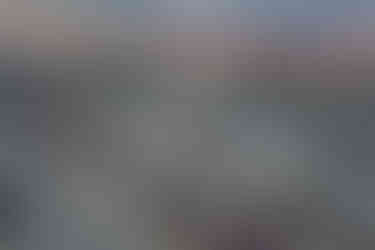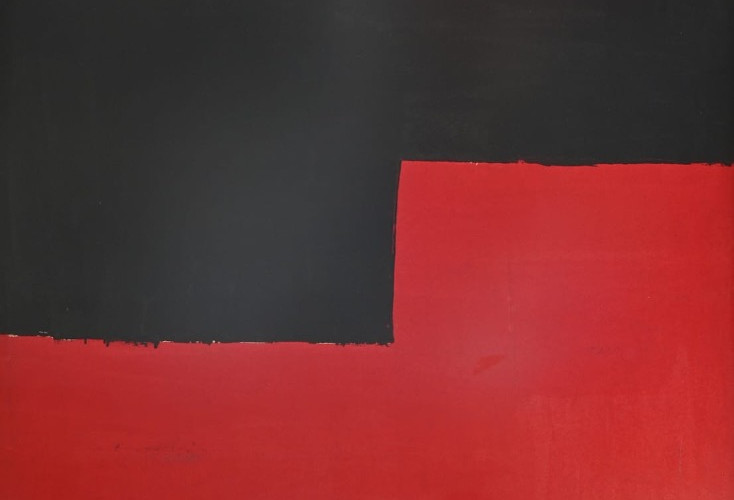.
- volpoinbal
- Aug 10, 2025
- 7 min read
Updated: Nov 11, 2025

About the Symposium Read More
Common Ground- Deconstructing Walls is a series of symposiums which presents an intervention of art and activism that promotes dialogue and understanding within the diverse and sometimes polarized society of Vienna and beyond regarding Palestine and Israel.
Against the backdrop of deepening divisions, dehumanization, and violence, from the ethnic cleansing of 1947, through the decades of occupation, to the mutual violence that culminated in the massacre carried out by Hamas on October 7 and the ongoing genocide in Gaza, these events will explore possible paths to accountability and reconciliation with the participation of experts, activists, artists, and representatives of civil society organizations from across the region and Europe.
The second event in the series, “Safety and Freedom,” will address the concept of security within the Israeli sphere as a governing system which dispossesses Palestinians of their humanity, denies their freedom, perpetuates occupation and apartheid in the West Bank, enables the ongoing genocide in Gaza, and contributes to moral decay and the erosion of political freedoms within the Israeli political sphere.
Drawing on the expertise of legal scholars, historians, regional human rights organizations and a photography exhibition, the symposium will examine security as a mechanism of control and will explore practices, power structures, the suppression of Palestinian freedom, and their impact on Israeli society.
Activestills | Documenting Genocide | Mohammed Zaanoun, Yousef Zaanoun, Doaa Albaz Read More
While a ceasefire takes form again as people find their way back among the ruble to the destruction that was once their lives, the Activestills collective invites you to bear witness to the atrocities of the Israeli genocide in Gaza, acknowledging thatits toll will last long after a ceasefire settles in. An end to the war of annihilation is not enough. We must also seek and demand justice and accountability, and indeed, liberation.
For the last two years, Israel has waged a genocidal war on Gaza, killing over65,500 Palestinians, more than 20,000 of them children, with many thousands more still buried under the rubble. The entire population of this besieged territory, most of them refugees from Palestinian villages ethnically cleansed by Israel in 1948, has
been subjected to mass killing, starvation and displacement. With near-total impunity and Western complicity, Israeli attacks have wiped out entire families,targeting hospitals, schools, universities, mosques, churches, homes and shelters. Most of Gaza has been destroyed, erasing residential neighbourhoodsand refugee camps as well as agricultural land.
As of October 2023, Israel has barred international journalists from unsupervised access to Gaza, leaving Palestinian journalists the sole documenters of theirunfolding genocide. Since then, over 300 Palestinian journalists, photographers and other media workers have been killed by Israel, often in deliberately targeted attacks, making the genocide in Gaza the deadliest period for journalists in modern history.
Mohammed Zaanoun, Activestills photographer since 2018, documented the beginning of the genocide until he managed to leave with his family. Hewas displaced multiple times, was
forced to dig through the rubble of his home to rescue his children and faced direct threats to his life. Later on, his brother, Yousef Zaanoun, and the photographer Doaa Albaz joined the collective. For two years, Doaa and Yousef have been documenting the mass destruction and displacement, children starving to death and the killing of their colleagues, while also facing themselves, repeated displacement, injuries, separation from their family, loss and hunger. Despite personal risk, hardship and the lack of electricity and internet, Palestinian photographers continue to fulfil their duty to document the genocide in Gazathroughout all its stages, while also capturing moments of hope, solidarity and defiance.
This exhibition is a tribute to, and a demand for justice for, our colleagues inGaza: those who have been killed, assaulted, arrested and dehumanized, and those who, despite the risks and the horrors, continue to document what is happening for the world to see and for us to act.
Since 2005, the Activestills photography collective has been documenting Israeli colonial violence and Palestinian resistance. The collective sees its work of documenting and archiving as a form of narrative reclamation and resistance to the colonial practices of destruction, control, co-option, appropriation and erasure of Palestinian lives and voices.
Ibrahim Nubani | Recent Works Read More
Born in Acre, in Occupied Palestine in 1961, Ibrahim Nubani graduated from the Bezalel Academy of Arts and Design in Jerusalem.
His paintings moved across time from dense geometric patterns repetitively drawn to chaotic and colorful canvases. The intense presence of symbolic eyes and prison bars is part of an iconography developed by the artist: it reveals the opposition between an old desire to integrate into the Israeli society and the present need to live fully as a Palestinian under oppression.
In Nubani's bright-colored paintings, geometrical patterns or abstracted chaos, are not only an incentive to transcend his personal duality but also symbolizes the freedom of surpassing the figurative, and the positioning between Western art and postcolonial postures.
Nubani lives and works in Makr, Galilee, Occupied Palestine.
Osama Zatar | Divide and Conquer
Born in 1980 in occupied Palestine, Zatar has lived a life shaped by borders, checkpoints, and the constant sense of confinement. These experiences have profoundly influenced and defined the central themes of Zatar’s artistic practice.
In recent years, Zatar’s personal confrontation with borders has deepened. His marriage to an Israeli woman has brought into sharper focus the deep divisions and segregation that persist between Palestinians and Israelis. This personal struggle, to transcend imposed boundaries and the limitations of movement, has become a driving force in his work.
Through his art, Zatar seeks to communicate across these divides, transforming personal experience into a form of resistance and dialogue. His practice stands as both testimony and tool: a means to speak out against separation and to envision new possibilities for connection and freedom.
About the participants
Adi Mansour, Civil and Political Rights Unit, Adalah Legal Center Read More
Adi is an attorney in the Civil and Political Rights Unit at Adalah Legal Center. Since joining the organization in 2021, he has argued in numerous criminal and constitutional cases across various fields, including free speech, political participation, the rights of political prisoners, and citizenship.
Adi is also a PhD researcher at the European University Institute. His research looks into the regulation of online content through digital infrastructures, focusing on the emergence of visible and invisible surveillance and control structures in the context of Palestinians under Israeli control.
Dr. Avi-am Tzoreff, Historian, A Land For All, Zochrot, Mizrahi Civic Collective Read More
Avi-ram is a historian specializing in Jewish-Arab relations in Ottoman and Mandatory Palestine/Eretz Israel, as well as in the period following the establishment of the State of Israel and the Palestinian Nakba in 1948. His research also focuses on the cultural and political history of the Jews of Ottoman Iraq and Habsburg Galicia. He is a member of the movements A Land for All, the Mizrahi Civil Collective, the organization Zochrot, and Academia for Equality association.
Hanna Barag, Activist, Checkpoint Watch, Ir Amim, Yesh Din Read More
Hanna is an Israeli human rights activist and a member of Machsom Watch (Checkpoint Watch) as well as a Board Member of Yesh Din. Born in 1935 in Haifa and raised in Tel Aviv, she studied Sociology and International Relations at the Hebrew University of Jerusalem, where she also worked as Social Secretary to Prime Minister David Ben-Gurion.
Hanna began her professional career as a conference organizer with Kenes before founding her own company specializing in special events and conventions. For the past 25 years, she has been actively involved in three major Israeli human rights organizations. With Yesh Din, she served as one of five elected members of the Governing Board; with Machsom Watch, she has taken on a liaison role with the Israeli military and represented the organization both in Israel and abroad; and with Ir Amim, she contributes as a member of the Oversight Committee.
In recognition of her tireless volunteer work with Machsom Watch and her steadfast commitment to opposing the injustices of the occupation, Hanna was awarded the 2017 Prof. Yeshayahu Leibowitz Prize. She is also a founding member of EFI – Asperger Israel, serving on its Governing Council.
Hanna has lived in the United Kingdom, Germany, and the United States, and now resides in Jerusalem. She is the mother of two daughters, grandmother to five grandchildren, and great-grandmother to two great-grandsons.
Izzat Al Karaki, Activist, Youth Against Settlements Read More
Izzat is a Palestinian human rights activist from Hebron and a blacksmith by trade. For the past 17 years, he has been a prominent figure in the nonviolent resistance movement Youth Against Settlements (YAS) — a grassroots organization dedicated to ending the Israeli. As an active member of YAS, Izzat has worked to raise awareness about the daily challenges faced by Palestinians living under occupation, particularly in Hebron, one of the most heavily restricted cities in the West Bank.
Dr. Thair Abu Ras, Political scientist, A Land for All & Member of the Board of B'Tselem Read More
Thair Abu Ras is a political scientist specializing in political identities of the modern Middle East. He completed his PhD last February at the department of Government and Politics at the University of Maryland. Thair has extensive experience working in Israeli civil society and on Arab-Jewish relations in Israel, having worked for Mosawa-The advocacy center for Arab citizens of Israel, Israel's Equal Employment Opportunities Commission, and Sikkuy-Aufoq: a shared Jewish and Arab nonprofit organization that works to advance equality and partnership between the Arab-Palestinian citizens of Israel and the country's Jewish citizens.
Firas Alami, Director of Field Operations, Yesh Din Read More
Firas Alami is the Director of the Field Research Department at Yesh Din – Volunteers for Human Rights, an Israeli organization that works to protect the human rights of Palestinians in the West Bank by documenting, collecting, and publishing reliable, up-to-date information on systematic violations committed in the occupied Palestinian territory (OPT).
Firas has been with Yesh Din since 2010 and has over two decades of experience in human rights fieldwork. Between 2002- 2010 he worked with the Association for Civil Rights in Israel (ACRI) as a field researcher in the field unit.
He holds a bachelor’s degree in social work from the Hebrew University of Jerusalem.
Over the years, Firas has established and maintained strong relationships with Palestinian communities across the West Bank, documented numerous incidents of settler violence and land seizure, led field tours, and played a key role in supporting legal and advocacy processes.
Common Ground- Deconstructing Walls is a project by OneState Embassy Art Collective
And is funded by SHIFT, a funding program of the City of Vienna for alternative, artistic practices in decentralized cultural work.
Location: WEST/WU, Alte Wirtschaftsuniversität/ Unizentrum Althanstraße




















